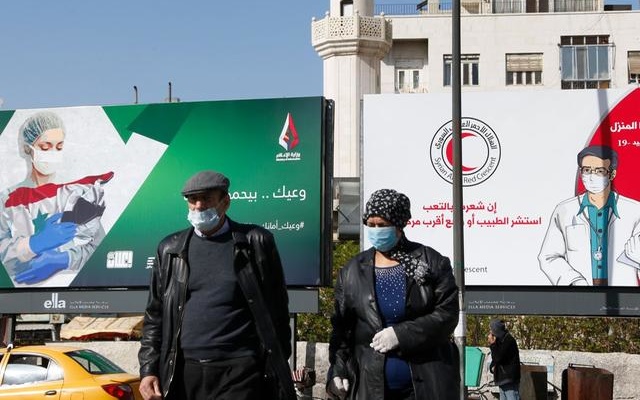The Assad regime has extended the curfew imposed to check the spread of Coronavirus, even as it continues to admit only 10 cases and one death.
The Cabinet, which imposed a shutdown of 6 p.m.-6 a.m. in its areas last weekend, ordered a 12 noon-6 a.m. curfew on Fridays and Saturdays.
In Tartous in western Syria on the Mediterranean coast, a 24-hour curfew was announced, starting at 2 p.m. yesterday.
Ministers also approved the lockdown of the area around the Sayyeda Zeinab shrine, an iconic site for Shi’a Muslims, in southern Damascus.
No specific explanation was given for the measures.
The regime acknowledged the first Coronavirus fatality last weekend, but Health Minister Nizar Yazigi has given conflicting accounts about the circumstances of the woman in her 20s.
Medics, activists, and residents believe the toll is far higher than the regime’s numbers.
Cabinet Steps Over Shortages and High Prices
Amid another wave of Syria’s economic crisis, the Ministers approved a series of steps trying to address shortages and skyrocketing prices.
Exports of legumes, dairy products, cheese, eggs, chlorine, and disinfectant water have been suspended for a month. The Syrian Trade Corporation has been ordered to import calves, to fatten them for provision of meat.
Price limits are to imposed on sterilizers and alcohol.
Syrian GDP has contracted by 75% during the country’s nine-year conflict. The regime is now facing the triple threat of Coronavirus, a finanical crisis in Lebanon where many Syrians hold their bank accounts, and US sanctions reinforced by the Caesar Act over regime crimes against humanity.
Imports of wheat and other essential goods have been crippled, adding to the rapid inflation, shortages of cooking gas, and blackouts which Syrians have faced for years.
See also Syria Daily, March 27: Coronavirus Adds to Residents’ Economic Woes in Damascus
The Syrian oound, which has lost another 50% of its value in recent months, sunk another 10% to reach 1,175:1 v. the US dollar in mid-March.
In March 2011, at the start of the Syrian uprising, the pound was about 50:1 v. the dollar.
Jihad Yazigi, the editor of Syria Report, summarizes:
In these conditions, Syria’s population will remain highly dependent on international humanitarian effort. [But] given the pressure the Coronavirus is putting on the finances of major donor countries, the future of international aid is itself under question.

